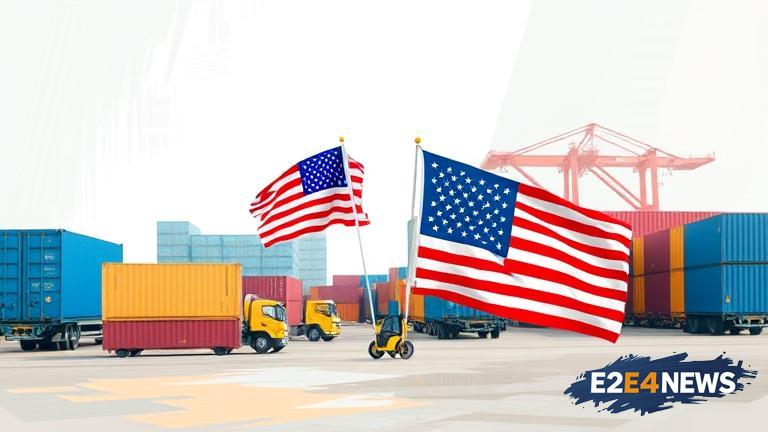Malaysia’s Finance Minister, Zafrul Abdul Aziz, has assured that the country’s trade relations with the United States remain intact despite the imposition of a 19% tariff on certain Malaysian products. The tariff, which was imposed by the US government, has raised concerns about the potential impact on Malaysia’s economy. However, Zafrul has downplayed the effects, stating that the tariff will not significantly affect Malaysia’s trade with the US. The minister attributed this to the fact that the majority of Malaysia’s exports to the US are not subject to the tariff. He also emphasized that Malaysia will continue to engage with the US to resolve any trade issues and strengthen bilateral trade ties. The US is one of Malaysia’s largest trading partners, and the two countries have a long history of trade cooperation. The imposition of the tariff has been seen as a setback to this cooperation, but Zafrul’s assurance has helped to alleviate concerns. The minister also noted that Malaysia is exploring other markets to diversify its trade and reduce its dependence on any one country. This move is seen as a strategic effort to mitigate the risks associated with trade tensions. Meanwhile, the Malaysian government has been working to promote trade and investment with other countries, including those in the region. The country has also been actively engaged in regional trade agreements, such as the Comprehensive and Progressive Agreement for Trans-Pacific Partnership (CPTPP). The CPTPP is a significant trade agreement that aims to promote economic integration and cooperation among its member countries. Malaysia’s participation in the CPTPP is seen as a key factor in its efforts to diversify its trade and reduce its dependence on any one country. The country has also been working to strengthen its trade ties with other countries, including China, Japan, and South Korea. These efforts are expected to help Malaysia maintain its trade competitiveness and mitigate the risks associated with trade tensions. In addition, the Malaysian government has been implementing various initiatives to promote trade and investment, including the development of special economic zones and the provision of incentives for foreign investors. These initiatives are aimed at attracting more foreign investment and promoting economic growth. The government has also been working to improve the business environment and reduce bureaucratic hurdles to facilitate trade and investment. Overall, while the imposition of the tariff by the US has raised concerns, Malaysia’s trade relations with the US remain intact, and the country is well-positioned to navigate the challenges posed by trade tensions. The government’s efforts to diversify its trade and promote trade and investment are expected to help Malaysia maintain its trade competitiveness and achieve its economic growth targets. The country’s trade ties with other countries, including those in the region, are also expected to continue to grow, driven by its participation in regional trade agreements and its efforts to promote trade and investment. In conclusion, Malaysia’s trade relations with the US remain intact despite the imposition of the tariff, and the country is well-positioned to navigate the challenges posed by trade tensions. The government’s efforts to diversify its trade and promote trade and investment are expected to help Malaysia achieve its economic growth targets and maintain its trade competitiveness. With its strategic location and favorable business environment, Malaysia is expected to continue to be an attractive destination for foreign investors and a key player in regional trade. The country’s trade ties with other countries, including those in the region, are also expected to continue to grow, driven by its participation in regional trade agreements and its efforts to promote trade and investment. As the global trade landscape continues to evolve, Malaysia is well-positioned to adapt and thrive, driven by its strong trade relationships and its efforts to promote trade and investment.





